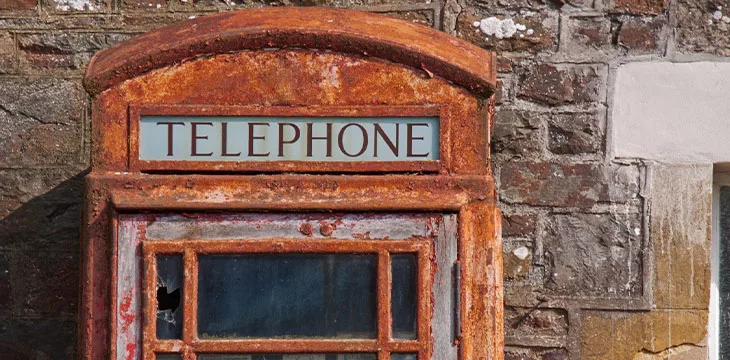|
Getting your Trinity Audio player ready...
|
As the U.K. prepares for a ban on finance-related cold calls, HM Treasury issued a consultation paper calling for evidence to judge the potential impact on businesses and the costs associated with introducing and implementing the ban.
The 19-question August consultation is the latest development to come out of the U.K. government’s ambitious fraud strategy, announced on May 3, to stop fraud at its source and pursue those responsible.
“Predatory criminals take money out of the pockets of hard-working people, businesses, and organisations, callously targeting the most vulnerable, online and in their own homes. The volume and severity of fraud also undermines public confidence in the rule of law and threatens our national and economic security,” said the government when announcing the strategy.
To achieve its goal of a 10% reduction in fraud on 2019 levels by December 2024, the government plans to establish a new national fraud squad with over 400 new posts, a ban on SIM farms used by criminals to send thousands of scam texts at once; requiring mass texting services to be registered; changing the law so that more victims of fraud will get their money back; and the ban on finance-related cold calls.
Cold calling involves individuals or organizations making unsolicited calls to consumers to market a service or product.
“In some cases, these calls are made by direct marketing companies in breach of relevant privacy regulations, but in other cases, the products and services being marketed do not exist, and the call is fraudulent,” noted the cold call consultation paper.
The government estimated that between August and November 2022, over half of all U.K. landline users received a suspicious call. The consultation identified a range of frauds related to the loss of funds by consumers and investors via cold calls, including a digital asset-related example.
The case study involved “Stephen” (the name was changed to maintain anonymity), who received a cold call to invest in digital assets and decided to invest £250 ($314).
“As this was Stephen’s first-time trading, he was anxious if he would ever get his money back, so the suspect provided money back initially for the first few investments. This built up Stephen’s trust and in total he invested £65,000. Over time, Stephen wanted to withdraw some of his funds but was unable to do so. He has tried contacting the suspect but has been unable to get a hold of him and is now at a loss of £65,000 ($81,747),” said the consultation.
However, the government also acknowledged the legitimate contribution to the U.K. economy that the marketing and sale of financial services and products plays, with the financial services sector contributing £173.6 billion ($218.33 billion) in 2021.
It’s for this reason that the government is seeking to gauge opinions about the effects of a blanket cold-calling ban on those operating above board.
Questions for legitimate businesses included:
– Do you or your organization use cold calling for new or existing customers?
– How would a ban on the use of cold calls to promote and/or sell financial products impact your business or customers?
– In the absence of cold calling, what alternative methods of contact do you have available to you to contact new or existing customers?
– Can you indicate how much revenue can be attributed to the uses of cold calling to sell or promote financial products?
The consultation will close on September 27, 2023, at which point the government will consider responses and propose a final version of the cold call ban to parliament.
In support of the ban, Economic Secretary to the Treasury Andrew Griffith MP said, “the government will not tolerate this behaviour… We can work together to tackle the fraudsters head-on by cutting off their ability to deploy the high-pressure tactics of cold calling. We want the public to know that any unsolicited call marketing financial products such as a cryptoasset or insurance is a scam.”
Griffith said he looked forward to receiving input on how best to achieve the cold call ban.
Watch: BSV Blockchain provides solutions for cybersecurity & fraud

 07-12-2025
07-12-2025 





